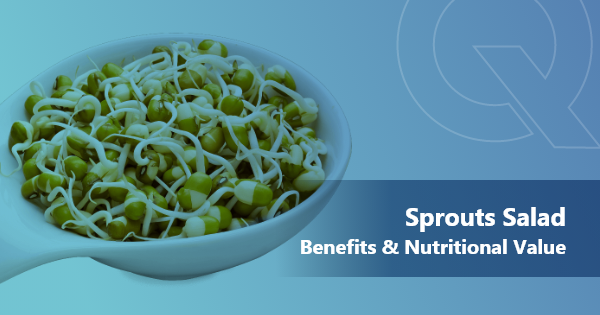Yes, Apple Cider Vinegar helps in weight loss. Apple cider vinegar (ACV) is a vinegar made from fermented apples, yeast, and sugar, commonly used in foods like salad dressings, pickles, and marinades. Over the years, it’s been used as a home remedy for various purposes, from combating germs to alleviating heartburn. Recent studies suggest potential health benefits, like lowering blood sugar levels and aiding in weight loss, although more research is needed to confirm these effects. When used correctly, ACV is generally safe.
Contents
- 1 What Are the Types of Apple Cider Vinegar?
- 2 The Health Benefits of Vinegar
- 3 What Are the Benefits of Apple Cider Vinegar?
- 4 What Are Other Uses for Apple Cider Vinegar?
- 5 How Do You Use Apple Cider Vinegar?
- 6 What Are the Dosages for Apple Cider Vinegar?
- 7 What Are the Risks of Apple Cider Vinegar?
- 8 The Shelf Life of Apple Cider Vinegar
- 9 Frequently asked Questions
What Are the Types of Apple Cider Vinegar?
Apple cider vinegar is produced through a fermentation process comprising two stages. Initially, crushed apples undergo fermentation with yeast to convert sugar into alcohol within a few weeks. Subsequently, natural bacteria transform the alcohol into acetic acid, imparting vinegar with its characteristic tanginess and aroma.
Most commercially available apple cider vinegar is clear, pasteurized, and filtered. However, unfiltered varieties, containing a cloudy sediment known as “the mother,” are also available. The mother comprises settled bacteria and yeast and is sometimes credited for ACV’s perceived health benefits, potentially due to its trace amounts of probiotics beneficial for gut health. Nonetheless, scientific evidence regarding the specific health benefits of the mother remains inconclusive.
The primary active component in ACV is acetic acid, which is believed to contribute to its potential health advantages. However, it’s worth noting that other vinegar types also contain acetic acid.
In addition to liquid forms, ACV is available in various supplemental forms such as pills, powders, and gummies. However, there’s limited research on the efficacy of these supplements, partly due to the lack of FDA regulation, making it challenging to ascertain their exact composition and potential health effects.
The Health Benefits of Vinegar
- Vinegar is rich in essential minerals such as potassium, magnesium, calcium, and phosphorus.
- Some types of vinegar, particularly darker ones, can be a good source of antioxidants.
- The darkness of vinegar indicates its level of refinement, with darker vinegars retaining more antioxidants and healthy compounds, influencing both taste and color.
What Are the Benefits of Apple Cider Vinegar?
- Most studies supporting the health effects of ACV have been small and inconclusive, indicating a need for larger investigations.
- Weight loss: One small study showed that taking ACV twice daily aided individuals on a reduced-calorie diet in losing extra pounds over 12 weeks, but the results were not definitive.
- Metabolism: Initial thoughts that ACV’s acetic acid might boost metabolism weren’t supported by data; weight loss may have been influenced by the placebo effect or decreased appetite due to possible nausea.
- Blood sugar: Some smaller studies suggest that consuming a tablespoon or two of ACV could moderately reduce post-meal blood sugar levels, but further research is required for a comprehensive understanding.
- Cholesterol: Limited research indicates that ACV might lower total cholesterol, increase “good” cholesterol, and decrease triglyceride levels, based on findings from small studies.
What Are Other Uses for Apple Cider Vinegar?
People often use apple cider vinegar for purposes that lack extensive research or proven effectiveness. These include:
- Lowering blood pressure: While a rat study hinted at ACV’s potential for high blood pressure, no human studies support this claim. Medical treatment and a healthy lifestyle remain crucial for managing hypertension.
- Easing acid reflux: Despite anecdotal support, there’s no scientific evidence confirming ACV’s effectiveness for heartburn or acid reflux. Consult your doctor before trying it, starting with diluted amounts.
- Providing eczema relief: Some eczema sufferers use ACV, but research on its efficacy is limited, and it may cause skin irritation. Consult your dermatologist before use.
- Germ-killing properties: ACV, combined with lemon juice, may inhibit bacterial growth on salad greens but doesn’t protect against wound infections.
- Improving hair health: While ACV is used as a hair rinse for dandruff or product buildup, its effectiveness lacks scientific backing. However, its antibacterial and antifungal properties could potentially benefit hair health.
- Softening hard water effects: ACV is believed to reduce calcium buildup in hard water, leaving hair shinier after shampooing, although this claim lacks extensive scientific validation.
How Do You Use Apple Cider Vinegar?
It’s both safe and flavorful to incorporate apple cider vinegar (ACV) into your meals. Here are some ways to enjoy it:
- Use ACV to enhance sauces, stews, salad dressings, and marinades for an added zing.
- Dilute ACV in hot or cold water according to your preference and enjoy it as a beverage before or after meals or before bedtime.
If you opt for ACV supplements:
- Consult your doctor for recommended dosages, as they may vary by brand. Look for trusted brands with certifications from organizations like the Banned Substances Control Group, Informed Choice, ConsumerLab, United States Pharmacopeia, NSF Certified for Sport, or NSF International.
If your doctor approves ACV for eczema:
- Perform a patch test before widespread use to check for skin irritation.
- Incorporate ACV into your routine through a bath or wet wrap method for potential skin benefits.
For using ACV as a hair rinse:
- Apply it post-shampoo and leave it in for 5 minutes before rinsing. Limit usage to once a week to prevent hair dryness.
- To reduce scalp and skin irritation, start with a diluted solution, such as mixing ACV with equal parts water or adding 2-4 tablespoons to 2 cups of water.
What Are the Dosages for Apple Cider Vinegar?
Given the ongoing research on apple cider vinegar (ACV), there are no official dosage recommendations. However, insights from some studies provide clues on potential beneficial amounts for certain health concerns:
- Weight control: In studies reporting weight loss benefits, participants consumed approximately 2 tablespoons of ACV per day, divided before lunch and dinner. This dosage is generally considered safe for most individuals.
- Blood sugar and cholesterol control: Participants in studies showing improvements typically consumed about 1½ tablespoons of ACV after a meal.
- Acid reflux: For acid reflux relief, diluting a teaspoon or two of ACV in a mug of warm water after a meal may be helpful without exacerbating the condition.
It’s essential to consult with your healthcare provider for personalized dosage guidance based on your health status and individual needs.
What Are the Risks of Apple Cider Vinegar?
Due to its high acidity, consuming undiluted apple cider vinegar (ACV) may irritate the esophagus and potentially erode tooth enamel if used excessively. To mitigate these risks:
- Always dilute ACV with water before consumption, and consider using a straw to minimize contact with teeth. In food, ACV typically doesn’t pose these risks.
- Some individuals may experience indigestion or nausea from ACV. Avoid taking it on an empty stomach, and discontinue use if it causes discomfort or vomiting.
ACV can also interact with certain medications, including diuretics, laxatives, and insulin. Consult your doctor before using ACV alongside any medications.
For individuals with low potassium levels (hypokalemia), excessive ACV intake can exacerbate the condition by further reducing potassium levels. Likewise, individuals with kidney disease should use ACV cautiously, as their kidneys may not tolerate high acid levels well.
The Shelf Life of Apple Cider Vinegar
Due to its high acidity, apple cider vinegar (ACV) maintains its safety for an extended period. However, for optimal taste and appearance:
- Use ACV within 2-3 years of purchase to prevent changes in taste and appearance.
- Once opened, ACV doesn’t require refrigeration. Store it in a pantry or cabinet away from direct sunlight.
- Store ACV in a glass or plastic container with the lid securely closed to prevent moisture ingress and preserve its quality.
Frequently asked Questions
Q1: How do you use apple cider vinegar for weight loss?
A1: To use apple cider vinegar for weight loss, dilute 1-2 tablespoons in water and consume it before meals. It may help control appetite and improve digestion, supporting weight management goals.
Q2: How much apple cider vinegar can you drink to lose weight?
A2: For weight loss, a common recommendation is to consume 1-2 tablespoons of diluted apple cider vinegar before meals, up to twice daily. However, it’s important to consult with a healthcare professional for personalized advice and to avoid excessive intake.
Q3: How to lose belly fat in 2 weeks?
A3: Losing belly fat in 2 weeks involves a combination of dietary changes, regular exercise focusing on cardio and strength training, and adequate hydration.





